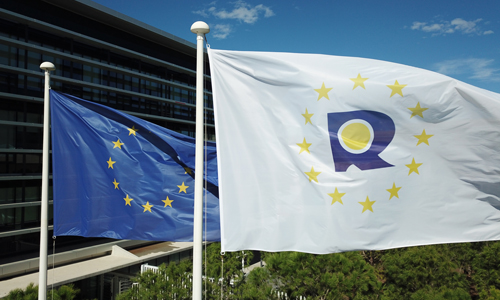The 17 March videoconference of the Members of the European Council endorsed the 16 March statement of the Eurogroup and invited the Eurogroup to continuously and closely monitor economic and financial developments and to adopt without delay a coordinated policy response to the rapidly evolving situation. To this end, I convened a videoconference of the Eurogroup and Ministers of non-euro-area Member States on 24 March. I am writing to you to share my personal conclusions.
Economic developments are confirming that COVID-19 and the urgent containment measures are having a far-reaching impact on the supply and demand sides of the economy. Accordingly, we agreed on the imperative to implement and scale up our agreed actions to support our citizens and businesses. This strategy includes further discretionary stimulus and coordinated action, designed, as appropriate, to be timely, temporary and targeted. The concrete steps we have already taken following the Eurogroup videoconference of 16 March are encouraging signs of the capacity of Member States to rise to the challenge in a co-ordinated manner. The aggregate amount of Member States’ discretionary fiscal measures increased twofold to close to 2% of Euro Area GDP, while liquidity support schemes for firms and workers have been scaled up to more than 13% of Euro Area GDP, up from 10%. This is a clear increase in our fiscal response.
This aggregate fiscal response is supported at the European level. To provide for the required flexibility for our public finances, the Commission activated the general escape clause and Ministers welcomed this on 23 March. This will give national budgets leeway to support the health sector and civil protection, to implement the agreed discretionary elements of our fiscal strategy and to allow automatic stabilisers to fully operate.
In addition to the fiscal response, the decisions taken by the ECB last week have provided a strong element of reassurance and we have welcomed them unanimously. Heightened vigilance remains important and we stand ready to continue to respond in a co-ordinated manner.
We also welcome that the Commission has issued a specific temporary State-aid framework to expedite public support to companies to mitigate the economic impact of the crisis, while ensuring the necessary level playing field in the Single Market.
Discussions have now progressed to making additional resources available at the European level to complement our national measures, enhance cooperation and demonstrate common purpose and solidarity. Accelerated legislative work is now underway to make the Corona Response Investment Initiative operational. This initiative will make it possible to mobilise €37 billion to support Member States’ urgent initiatives.
In addition to taking stock of the important progress made in the implementation of instruments announced in previous meetings, we also made significant progress on additional forms of support that could be made available. In particular, we broadly agreed that the significant resources of the ESM should contribute to our coordinated response and I can report there is a readiness to use the ESM, as needed, in a manner consistent with the external, symmetric nature of the COVID-19 shock. There was broad support to make a Pandemic Crisis Support safeguard available, within the provisions of the ESM Treaty, building on the framework of the existing Enhanced Conditions Credit Line (ECCL).
We are in broad agreement that Pandemic Crisis Support is a relevant safeguard for any ESM Member affected by the symmetric pandemic shock and that it would be available to all, with appropriate standardised terms, on the basis of an up-front assessment by the institutions. Given the current health emergency, there was broad support for making the applicable terms and conditions, consistent with the particular nature of the shared challenge our societies are facing. If the credit line is drawn, ESM support would be used specifically for the costs of responding to the Corona outbreak including health costs and incurred economic costs. In the longer-term, Members should focus on ensuring a sustainable path. There is also broad agreement that significant resources should be allocated to Pandemic Crisis Support and the ESM could set around 2% of Member State GDP as a benchmark, which could be adjusted depending on the development of the pandemic. I proposed that we deliver without delay and develop the necessary technical specifications before the end of next week.
Making Pandemic Crisis Support available from the ESM would be an important and timely first step based on existing instruments. The Eurogroup will continue to work on appropriate solutions to address the crisis we are facing and prepare the economic recovery, including through the ESM and the EIB.
We also look forward to further proposals from the Commission, based on EU budget resources, potentially including the creation of new instruments, and possibly supplemented by Member States.
Let me finish by stressing that the Eurogroup will continue its work on the COVID-19 response and stands ready to follow up to any mandate given by Leaders.


